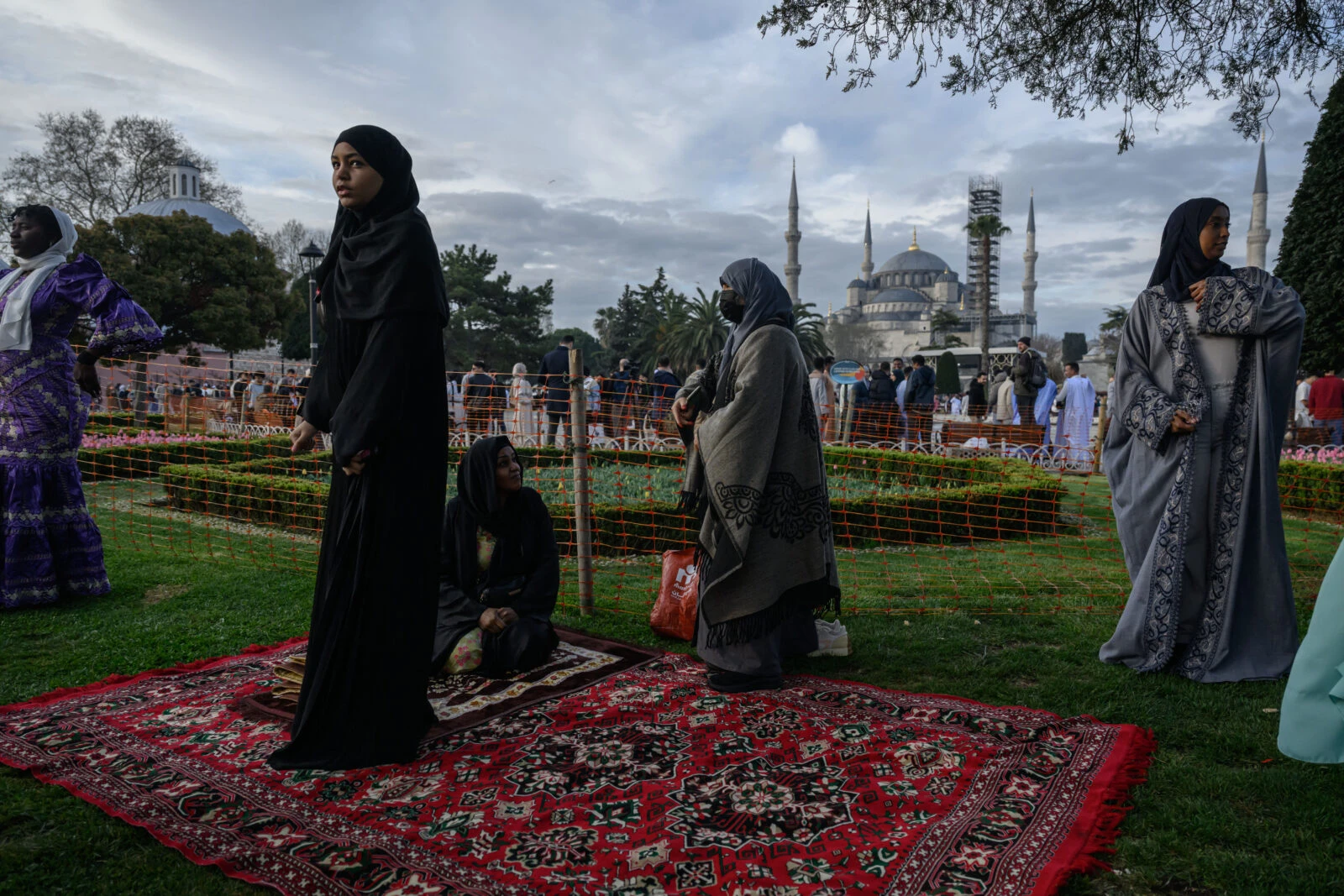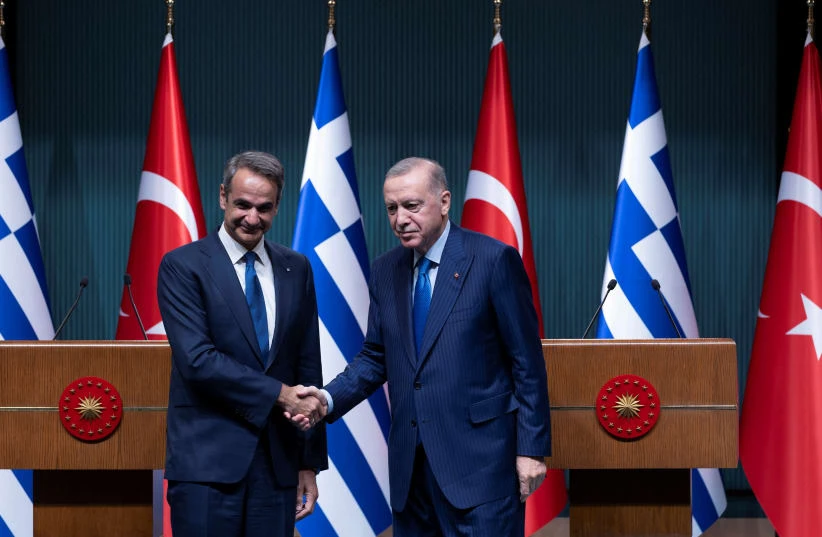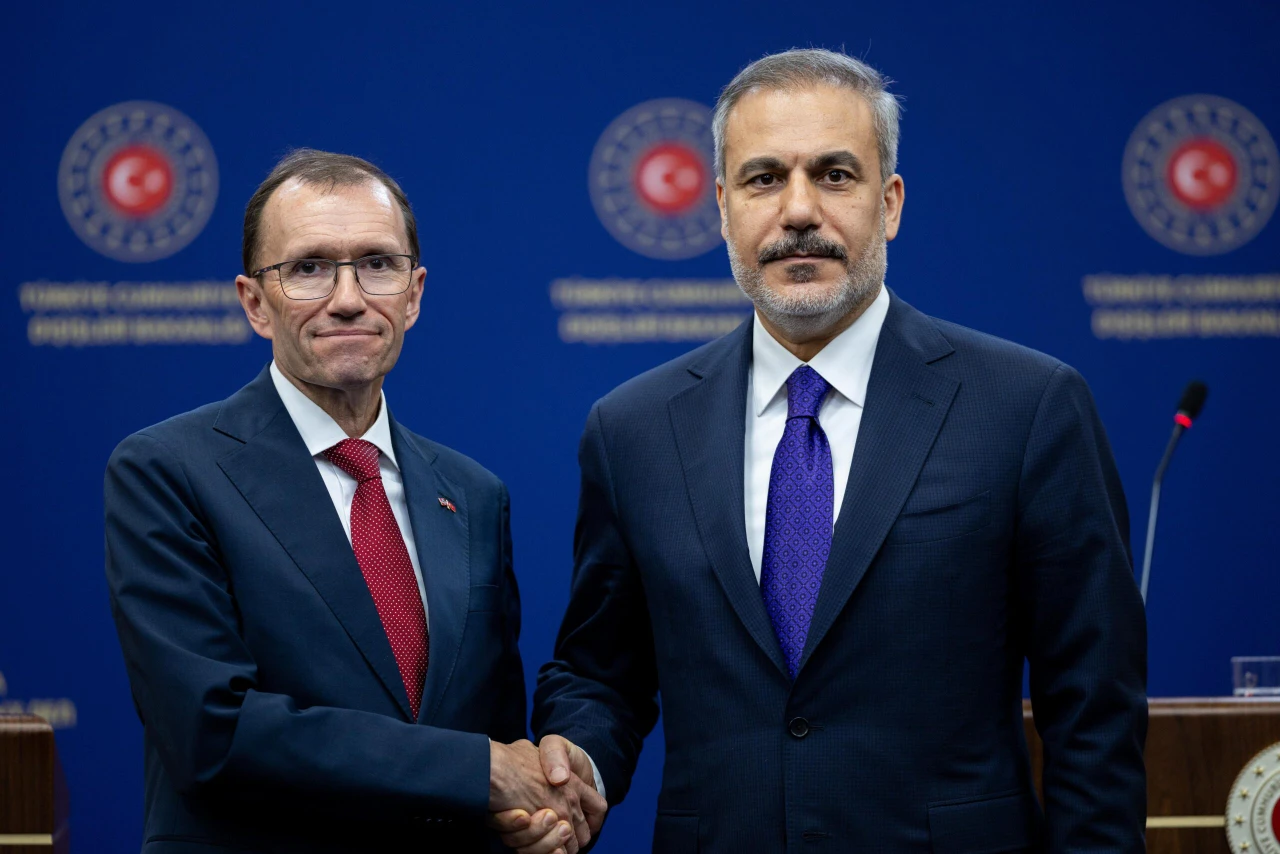Eid or Bayram? Naming, identity and meaning of tradition
 Worshippers pray at the Blue Mosque as muslims celebrate Eid al-Fitr which marks the end of the holy fasting month of Ramadan in Istanbul on March 30, 2025. (Photo by Ed JONES / AFP)
Worshippers pray at the Blue Mosque as muslims celebrate Eid al-Fitr which marks the end of the holy fasting month of Ramadan in Istanbul on March 30, 2025. (Photo by Ed JONES / AFP)
Across the Muslim world, two words are commonly used to describe the same religious celebrations: Eid and Bayram. At first glance, the difference might seem minor, just a matter of language. However, the choice between these terms often points to something deeper: history, culture, and how people see themselves within the wider Islamic world.
Both words refer to the same Islamic values: gratitude, generosity, reflection, and unity; yet they come from different linguistic and cultural roots. Eid is Arabic, used across the Arab world, South Asia and much of Africa. It is a term found in Islamic scripture. Bayram, on the other hand, is a native Turkish word. It originates within the Turkic linguistic tradition and holds cultural meaning among Turkic nations and related communities around the world.
This is not just a linguistic divide; it is a reflection of how religious traditions are shaped by place and memory. In Türkiye, Bayram is not only a religious occasion. It is also civic, cultural, and deeply familiar. People celebrate it through mosque visits, family gatherings, shared meals, neighborhood greetings, and visits to the graves of elders and respected figures. It is a moment when personal belief and social life come together in a way that feels natural, not separate.
By contrast, in many Arab-majority countries and parts of South Asia, the word Eid remains more strictly tied to religious observance. The celebrations are just as meaningful, but they often remain within the religious sphere. Governments might recognize the holiday, but it is not always woven into the cultural or civic fabric in the way Bayram is in Türkiye.
Neither term is more authentic than the other; each reflects how religion lives in different places, sometimes as a formal structure, sometimes as a lived tradition.

Türkiye’s role and the Bayram approach
Türkiye stands at a unique intersection. It is a secular republic with a deep Islamic heritage, and while it is not an Islamic state, it is clearly an Islamic country. Over time, Türkiye has shaped a model that allows religion to have a public presence without overwhelming public life. Bayram is part of this balance. It is grounded in faith but also carried by shared habits, public customs and generational memory. It is something people observe collectively, even if they relate to it in different ways.
This approach also shapes how Türkiye relates to other parts of the Muslim world. In the Balkans, Central Asia, and the Caucasus, places once connected by Ottoman rule or Turkic heritage, the word Bayram still resonates. Türkiye has leaned into that shared familiarity through language programs, holiday aid, cultural outreach, and education. Using Bayram in these efforts is not just symbolic; it fosters a sense of continuity and recognition without needing to be ideological.
There is still room to deepen this approach. Türkiye could invest more in cultural programs around Bayram, including oral histories, exhibitions, regional foods, and local customs. These are not just gestures of nostalgia; they highlight the fact that Islamic culture has many expressions, and each carries value.
Türkiye’s own diversity supports this effort. Bayram is not celebrated the same way in every part of the country. Different regions have their own customs, foods, and rhythms. Embracing this internal variety is a strength; it shows that Islamic tradition is not fixed. It adapts, evolves, and reflects the people who live it.
Unlike some countries that seek religious authority, Türkiye does not need to present itself as a spiritual center or compete with the Arab world in this respect. The fact is, Türkiye already has centuries of national practice and state experience when it comes to managing faith in public life. What it offers is not doctrine, but a vocabulary, a way of living with faith that feels accessible, rooted, and real.
What language says about belonging
In some places, both terms coexist. In Lebanon, for example, some families say Eid, others say Bayram. In parts of Central Asia, older generations use Bayram, while younger ones, influenced by broader religious movements, prefer Eid. These shifts are small, but they reflect deeper conversations about heritage, identity, and cultural orientation.
Religious holidays are never just about ritual. They are also about memory, how people connect to their history, to each other, and to the values they share. What a society calls its holiday is not a random choice; it reflects how that society sees itself and how it wants to be seen.
Eid and Bayram refer to the same sacred moments, but they have traveled different paths. One follows the formal language of religion; the other moves through everyday life, through homes, kitchens, cemeteries, and neighborhoods.
Bayram is a moment when faith and civic life meet, not in tension but in dialogue in Türkiye. It is not something to export or impose. However, it may offer a quiet reminder that religious tradition can thrive when it is allowed to grow within the culture, not separate from it, but part of it.
The word Bayram carries generations of meaning, from Anatolia to Sarajevo, westward to Berlin and Hamburg, and again from Anatolia to Baku, Samarkand, and the other major cities of Central Asia. To preserve and share that memory, not to claim it but to honor it, is one way Türkiye can continue to play a meaningful cultural role. This is not about projecting power; it is about keeping something valuable alive: connection, heritage, and the feeling of belonging.
About the author: Ceren Harputlu is an analyst specializing in international relations. She occasionally contributes as a freelance writer on various subjects.



